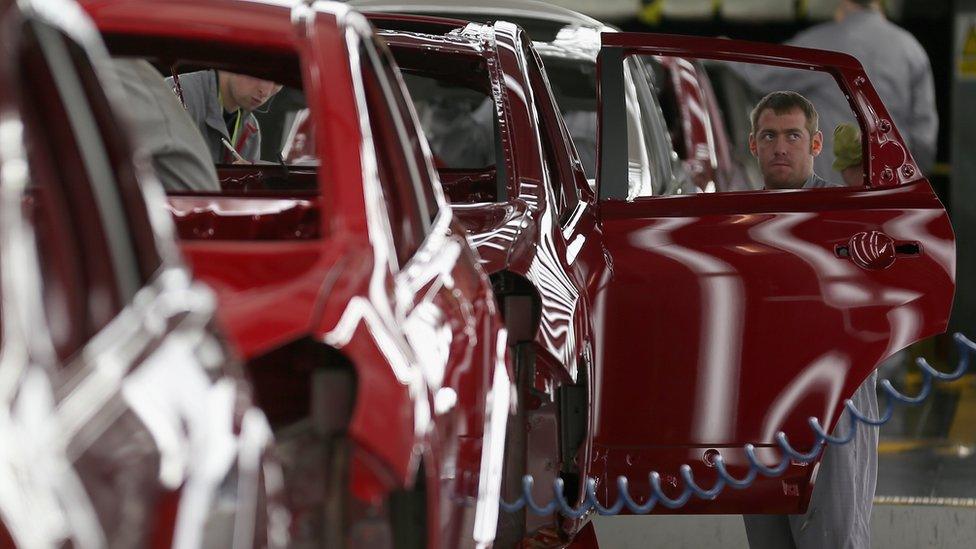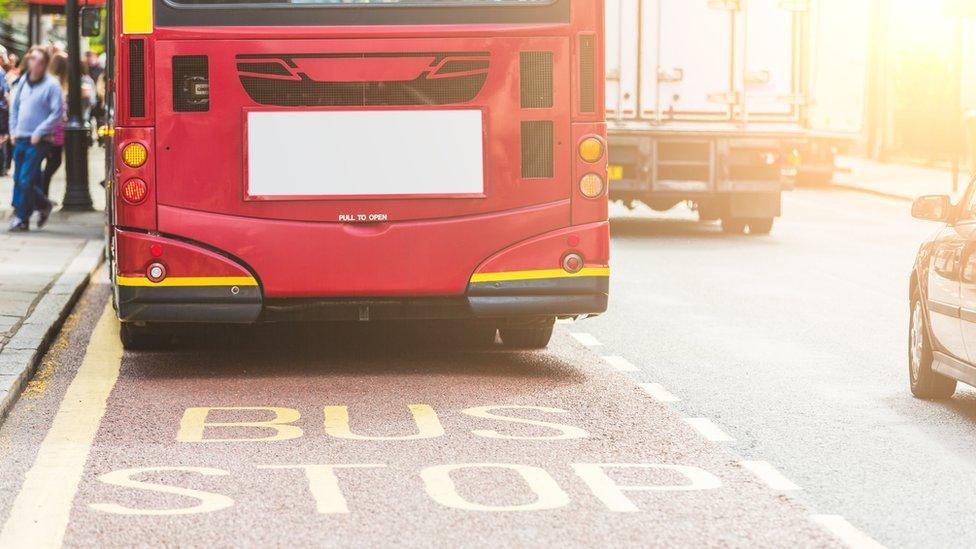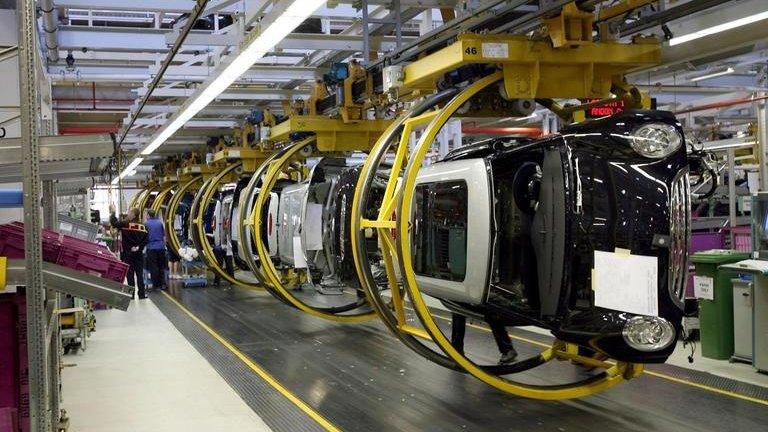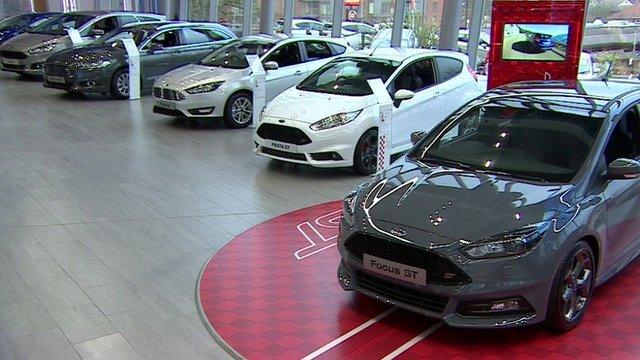Cars on England's roads increase by almost 600,000 in a year
- Published

The number of cars on the road is up after a big year for production
The number of cars on England's roads has risen by almost 600,000 in one year.
Latest figures show there were 25.8 million licensed cars in the third quarter of 2015 compared with 25.2 million in the same period of 2014.
Since 2011, the number has increased by about 1.6 million in England, 142,000 in Scotland and 69,000 in Wales.
The largest rise has been in south-east England, with 373,200 more cars over five years.
The Society of Motor Manufacturers and Traders said there had been 2.63 million new cars made during 2015, a 6.3% rise on the year before. Production also hit a seven-year high.
Reasons suggested by the RAC Foundation include the growing population and even the rise in women in work.
Updates on this story and more from England.
Meanwhile, bus use has fallen across two-thirds of English council areas over six years, which the Campaign for Better Transport blamed on cuts in funding for supported services.
Department for Transport statistics reveal in five out of nine English regions, there is now at least one car for every two people.
South-east England has 561 cars for every 1,000 people.
The rate has also increased in London and the West Midlands in the past year, but the areas still have fewer cars per person than they did in 2011.
Philip Gomm, from the RAC Foundation, said the cost of buying a car had fallen over the past decade.
He said: "Over the past 20 years, the rise in the number of cars on the road in Britain has been relentless, going up from 21 million in 1995 to 31 million in 2015.
"The reasons behind this include: a swiftly growing population; economic prosperity; an increase in the number of households; more people than ever in employment and the growth of women in work."
James MacColl, from the Campaign for Better Transport, said bus fare increases meant it would be difficult to "solve the problem of more cars on the road".
"It is vital bus services are properly funded as they are a lifeline for those who rely on them to access essential services such as work, schools, health services and shops."
A Department for Transport spokesman said it was making sure all parts of the transport network received investment.
A £250m grant for bus companies was protected in last year's Spending Review, he added.
- Published9 January 2016

- Published23 July 2015

- Published7 January 2016
